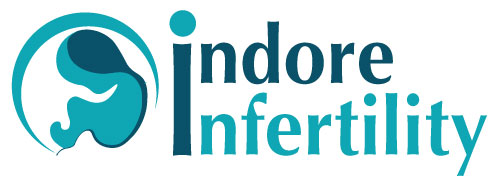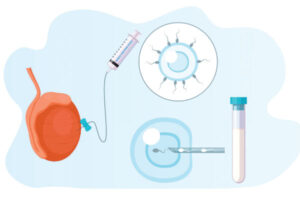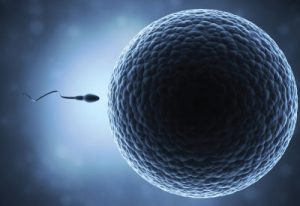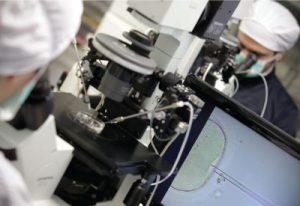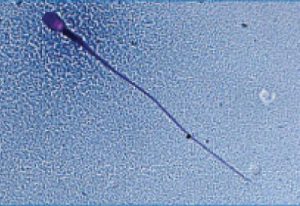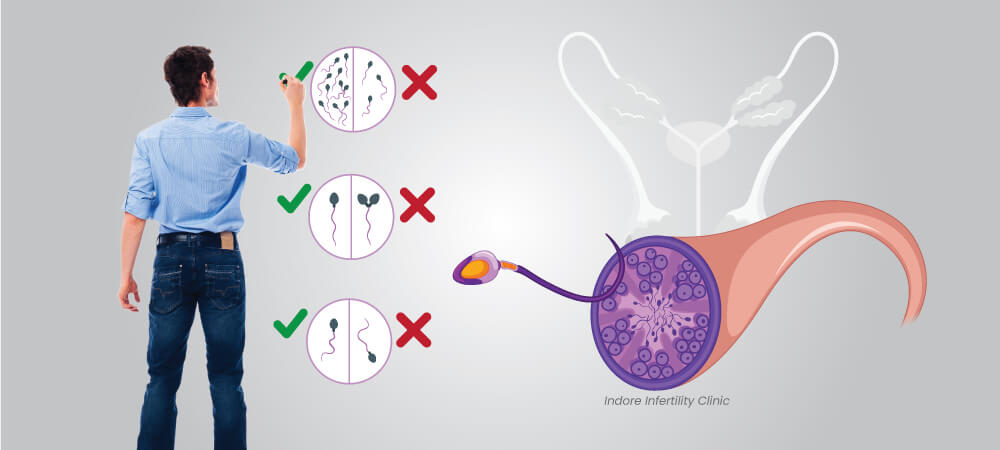
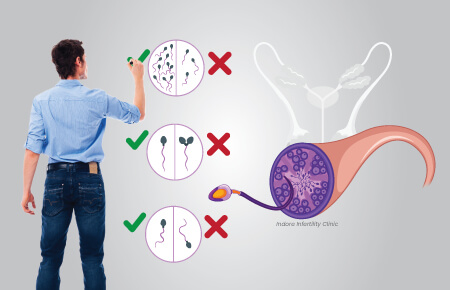
Abnormal Semen Parameter – One of the most common finding for any patient who gets a semen analysis done. But, is the report of abnormal parameter worth worrying always ? Let’d find out.
What is a normal semen report?
Your semen test results may vary depending on your age, health history, and other factors like abstinence maintained before the semen analysis test. Your test results may also be different depending on the lab parameters which is processing your sample. But some internationally acceptable parameter cut offs have been designated by the WHO (World Health Organization) to help in the assessment of semen report.
The normal ranges/ cut offs for common semen parameters, according to the World Health Organization, are:
- Volume: Greater than 1.3 milliliters (mL)
- pH: 7.2 to 7.8
- Sperm count: 35 million sperm per ejaculate
- Total motility (sperms showing movement) – 50%
- Sperm progressive motility, or the ability to move rapidly in forward direction: Greater than 35% actively moving
- Sperm morphology showing normal shape and size: Atleast 14% normally shaped
What is abnormal semen report?
Any semen report which shows the results less than the lower level of cut off for normalcy or does not show the required number of sperms in any particular said parameter in the normal range is considered an abnormal semen report.
Based on the particular parameter affected and the severity of abnormality your fertility specialist will advise treatment accordingly.
What is the cause of low sperm count?
There can be many reasons of getting low sperm count on your semen report, some common reasons are:
- A hormone imbalance due to hypogonadism: in many men the hormones essential for proper functioning of testes which eventually produce sperms are not produced in the adequate amount. Thus, the testes don’t produce the sperms in sufficient quantity and it can lead to a low sperm count.
- A genetic problem such as Klinefelter syndrome: In some men, there is a genetic condition which in which the chromosomes are not correct in number and type, i.e. instead of 46XY, the man has 47XXY karyotype, which eventually leads to many physical abnormalities including reduced or absent sperms.
- Having had undescended testicles in childhood: When the testes are not located in their natural location i.e. scrotal pouch in a boy, it can also impact sperm production when the child grows up and later as a man may face infertility. It is important to get timely surgical correction in the childhood, preferably in the early years of life to ensure such problems don’t arise when the boy grows up. Still a certain number of boys even after getting surgical correction fail to produce sperms in adulthood.
- Structural problems in the tubes– there are many conditions which can affect the tubes which transfer sperm out of the testis. Following causes are common causes of tubal blockage –
- Injury to the tubes due to trauma: leading to healing with scarring, causing blockage, common causes could be genital trauma doe to any cause.
- Infections of the genital tract causing tubal scarring and later blockage.
- Congenital absence of vas deference – it is a condition where tubes of one or both sides are absent by birth.
- A genital infection: such as chlamydia, gonorrhea or prostatitis (infection of the prostate gland), can impair the functioning of testes and eventually effect sperm production.
- Varicoceles (enlarged veins in the testicles): Sometimes the blood vessels surrounding testis can become dilated and that can impact sperm production by the testes.
- Any surgery done on the testicles or any hernia repair surgery done previously: these can sometimes injure the delicate blood vessels or the nerves supplying the testes and can impact sperm production by the testes.
- Overheated Testicles: For normal functioning of testes, it is important that the right temperature is present in the genital area of the body. High temperature around the testes will impair the sperm production. Wearing tight undergarments and working in high temperature environment can have that effect, and is not favorable for sperm production.
- Excessive alcohol consumption: alcohol is toxic for sperm production in high amounts, and it is advised to limit or if possible, stop alcohol consumption if facing infertility due to sperm abnormalities.
- Smoking: it is also harmful as smoke contains many chemicals which are toxic to sperms and hence it is important that smoking is stopped or at least limited by anyone who is trying to improve the semen parameters.
- Recreational drugs such as marijuana or cocaine and others: these substances contain many toxic chemicals and are responsible for impairing sperm production. Hence all such substance use should be stopped if a man is facing infertility due to abnormal semen.
- Certain prescription medications: cancer medications (chemotherapy), some antibiotics, some antidepressants and drugs for other psychiatric conditions can be harmful for sperm production. If at all you are being prescribed any of the possible medications, ensure that you get them checked by your fertility doctor and they might suggest to change them to safer drugs.
- Testosterone replacement therapy: If you are using testosterone by self or on prescription for any reason, ensure that you mention that to your fertility doctor, because that can impact your sperm production.
- Anabolic steroid use: Men who are enthusiastic about building body might sometimes use anabolic steroids to enhance their gym performance or get the right muscle mass they desire, but there is a very well-known side effect of these supplements on sperm count and quality being reduced. Hence it is advisable to be open and honest about using such substance with your infertility specialist.
- Being overweight or obese: It has been a topic of the recent research worldwide and it is becoming more and more evident that apart from other health risks, obesity is harmful for men who are planning family. Having a BMI above 29 is known to impair fertility in men. Mostly because it affects sperm quality as well as sexual performance in men.
- Testicular cancer: sperm production is affected in any man who has been diagnosed with cancer of the testes. If you have been diagnosed with such a condition or even any other cancer in the body, it is important that you consult with an infertility specialist because certain treatments for cancer like chemotherapy, radiotherapy and even if going for a surgery on the testis can impair the normal sperm production. Your fertility doctor can advise you about options like semen cryopreservation so that you can enjoy parenthood even if your testicular function gets effected.
- Stressful lifestyle: a very common yet underrated cause of semen abnormality is emotional stress, or even living a hectic lifestyle. The stress hormones produced in the body as a reaction to such an environment is the reason that semen parameters are also affected. It is advised by fertility specialists, that trying to live a stress-free life is essential in improving the semen quality. Practicing yoga, meditation and mindfulness can help in achieving this goal.
What is treatment for low sperm count? Or can low sperm count be treated with medicine?
When faced with a low sperm count leading to infertility the first advise that infertility specialists give is to make some lifestyle changes. It is important that you start making these changes as soon as possible, because the response takes some time to become apparent. Following are the most common and easy to follow lifestyle changes which will help improve your sperm count:
- Moderating your alcohol consumption: Try and stop or at least limit your alcohol consumption, as alcohol is toxic to sperms in high quantity.
- Stopping smoking: Cigarette smoke is known to be toxic for sperms, and hence it is of utmost importance that you stop it as soon as possible.
- Stop tobacco consumption: Just like cigarette, chewing or consuming tobacco in any form is harmful for sperms, and thus it is strongly advised that tobacco consumption should be stopped if you are undergoing infertility treatment.
- Reducing weight if obese or overweight: Weight reduction is known to enhance sperm count and quality in men, and thus they should be encouraged to lose excess weight.
- Getting enough sleep: Sleep is essential for destressing, and also for normal hormonal functioning in the body. Ensure that you get a good sleep.
- Exercising regularly: Apart from its many benefits, exercise is also known to enhance sperm production in men, and thus it is strongly advised to include it in your routine if you are getting treatment for low sperm counts or quality.
- Having a healthy and balanced diet – including fresh fruits, vegetables, dry fruits: To ensure production of good quality sperms, and to improve sperm counts, a healthy balanced diet is recommended. Avoiding junk and preserved food is also important.
How long do I have to take medicine for improving sperm count?
Sperm production and its transit from testis to the final exit from the male body takes approximately 3 months, and that is the reason that when any supplements or lifestyle changes are implemented to improve the sperm count or quality, they will be reflected in your semen report in approximately 3 months’ time, and sometimes, it can take longer than that.
Can hormonal treatment resolve low sperm count?
Yes, based on the cause of low sperm count hormonal treatment and some medications can improve the sperm count.
It primarily depends on where the problem is in the sperm production process. The causes which are hormone dependent in a man, can sometimes be treated with oral or injectable medicines or hormones.
Oral medicine like Clomiphene citrate can be prescribed or sometimes hormone injections called Gonadotropins can be prescribed to improve sperm production.
Your infertility specialist doctor may prescribe you these for a few months to improve your semen quality. But it is important to understand that only some specific cases can be treated with these medications and if the cause of low sperm count is not entirely hormone dependent, then these might not be helpful in treatment.
Does Ayurvedic treatment help in increasing sperm count?
Many ayurvedic formulations are available which claim to improve sperm quality and counts. The evidence for their effectiveness is weak, and hence they cannot be entirely relied upon to improve sperm quality and quantity in treatment of male infertility.
Can my wife get pregnant if I have low sperm count?
Yes, it is possible to get pregnant and enjoy fatherhood, even if you have low sperm count. The reproductive medicine advances have till this date made it possible for millions of men across the world to become fathers despite abnormalities in sperm counts or qualities. Following options are generally provided for low sperm count:
- Intra uterine insemination (IUI) for moderately reduced sperm counts
- IVF-ICSI (In vitro fertilization with Intracytoplasmic sperm injection)
- TESA – Testicular biopsy to retrieve sperm for IVF-ICSI
- Donor sperm from sperm bank
Does nutrient supplements have any role in improving low sperm count and motility ?
Semen parameters like sperm count, motility, live forms are indicators of healthy sperms. If semen parameters indicate some abnormality or below normal range, nutrient supplements can be advised to improve the quality of sperms. Following supplements are proven in various research studies to improve the sperm quality when given over a period of at least 3-6 months:
- Levo-carnitine: 1500 mg/day – improves sperm motility.
- Fructo- Oligosaccharide Prebiotic and fiber source.
- Coenzyme Q10: 200-400 mg/day – improves sperm concentration, motility and morphology.
- Folic Acid: 400 mcg/day – improvs sperm concentration and quality.
- Methyl-cobalamin: > 1500 mcg/day – improvs sperm concentration and quality.
- Selenium: > 50 mcg/day -improved sperm counts, concentration, motility and morphology.
- Zinc: 10-20 mg/day: increases the volume of semen, progressive sperm motility percentage and total normal sperm count.
- Lycopene: 4-8 mg/day – antioxidant, reduces oxidative damage to the sperms.
- Vitamin C: 500-1000 mg/day – protects the sperm from DNA damage.
- Vitamin E: 800 mg/day – protects the sperm from DNA damage.
How can I improve my sperm count?
When faced with a low sperm count leading to infertility the first advise that infertility specialists give is to make some lifestyle changes. It is important that you start making these changes as soon as possible, because the response takes some time to become apparent.
For lifestyle changes which are commonly advised by fertility specialists, please refer to previous answer about how to improve sperm count.
What is the cause of low sperm motility?
In semen parameters many of the abnormal results like low sperm count, reduced sperm motility or increased number of abnormal forms of sperms are due to common causes and thus the reasons for low sperm count and low sperm motility are mostly the same. Following is a list of causes for low sperm motility:
- A genetic problem such as Klinefelter syndrome: In some men instead of 46XY chromosomes, they have a 47XXY karyotype (chromosomal condition, affecting since birth), which eventually leads to many physical abnormalities including reduced or absent sperms and sperm motility could be impaired if sperms are present.
- A genital infection: such as chlamydia, gonorrhea or prostatitis (infection of the prostate gland), can impair the functioning of testes and eventually effect sperm production and sperm motility also.
- Varicoceles (enlarged veins in the testicles): dilated veins surrounding testis can impact sperm production by the testes along with sperm motility.
- Any surgery done on the testicles or any hernia repair surgery done previously: these can sometimes injure the delicate blood vessels or the nerves supplying the testes and can impact sperm production and its quality along with motility of the sperms.
Some other causes are also mentioned in the previous answer which are common for a low sperm count and reduced sperm motility are:
- Overheated Testicles
- Excessive alcohol consumption
- Smoking
- Recreational drugs such as marijuana or cocaine and others
- Certain prescription medications: cancer medications (chemotherapy), some antibiotics, some antidepressants and drugs for other psychiatric conditions
- Testosterone replacement therapy
- Anabolic steroid use
- Being overweight or obese
What is treatment for low sperm motility?
Sperm motility is the feature of a sperm to move, and it enables the sperm to travel from the vagina till the fallopian tube in the female genital tract to cause fertilization. Decreased motility means the sperms are not able to do this function and thus can lead to infertility in men. Many methods can be used to enhance motility in sperms, most successful being lifestyle changes and supplements for semen quality improvement. Please go through previous answer for improving low sperm count, as sperm count and motility both are improved by similar lifestyle modifications.
Certain nutrient supplements can also help in enhancing sperm motility and they can be advised by your fertility doctor for the same:
- Levo-carnitine: 1500 mg/day: improves sperm motility.
- Coenzyme Q10: 200-400 mg/day: improves sperm concentration, motility and morphology.
- Selenium: > 50 mcg/day: improved sperm counts, concentration, motility and morphology.
- Zinc: 10-20 mg/day: increases the volume of semen, progressive sperm motility percentage and total normal sperm count.
How long do I have to take medicine for improving sperm motility?
As stated in the above question, any changes advised or treatments that are given for sperm motility as well as other sperm parameters, will show in the reports at the minimum of 2-3 months’ time. Hence patience and persistence are important when undergoing treatment for improving semen quality.

Does Ayurvedic treatment help in increasing sperm motility?
As stated above, ayurvedic treatment does claim to improve semen parameters including sperm motility, but the evidence is scarce, and thus ayurvedic treatment cannot be a reliable option for those undergoing treatment for male infertility due to semen abnormality.
Can my wife get pregnant if I have low sperm motility?
Yes, with the advancement in infertility treatment, it is possible to get pregnant even if sperms have low motility.
IVF-ICSI is the technique in which sperms are directly injected into the eggs of the woman and an embryo is formed from that. The created embryo is then transferred in the uterus of the woman to achieve pregnancy. Please read our blog on the same to understand the process of IVF-ICSI.
Does surgery help in improving sperm count?
Yes, surgery can help in improving sperm count.
Depending on the cause of low sperm count in man, various surgical options can be offered by your infertility specialist to either restore the patency of vas deference as in cases of tubal obstruction or previous vasectomy. There are also surgeries advised which aim to extract sperm from the testis or epididymis for the purpose of IVF-ICSI. Surgery can also be advised for reversal of vasectomy if natural conception is the aim. If varicoceles are the cause of low sperm count, then its specific surgery can also be advised.
Surgeries to improve sperm count:
- Testicular biopsy or Fine needle aspiration: Under adequate anesthesia, testicular biopsy is taken using a fine needle to look for sperms. It is used in IVF-ICSI cases.
- Testicular FNA mapping: it is an alternative to testicular fine needle aspiration biopsy.
- Varicocelectomy: It is a surgery done in cases of low sperm count due to varicocele (dilated blood vessels near the testis).
- Vasovasostomy (VV): It is a surgery done to reverse any vasectomy done previously. The cut ends of the sperm transfer tube are stitched together to ensure that the tube becomes patent again, and male fertility is restored in vasectomized men. Natural conception can be tried later by regular intercourse after successful surgery.
- Vasoepididymostomy (VE): It is similar to vasovasostomy, only difference being the cur tube ends are directly joined to the epididymis, which can bypass any obstruction in the tube. It can also be done in vasectomized men. After a successful surgery natural conception can be tried by regular intercourse.
- Robotic assisted vasectomy reversal: The reversal of vasectomy is done using robotic surgery. Being expensive and not available everywhere it is not usually advised.
- Testicular sperm aspiration (TESA): Under adequate anesthesia, the semen sample is aspirated from the testis and then can be used for IVF-ICSI or cryopreservation if needed.
- Testicular sperm extraction (TESE): It is similar to TESA, only difference being a small incision is needed on the testis.
- Micro TESE: It is similar to TESE but used fine operative instruments and powerful microscopes to retrieve sperms for IVF-ICSI.
- Percutaneous epididymal sperm aspiration (PESA): Sperms are aspirated directly from epididymis, where sperms are of better quality. It can be used in cases of IVF-ICSI.
- Microscopic epididymal sperm aspiration (MESA): It is a procedure similar to PESA, but it is done using microsurgical technique and fine instruments.
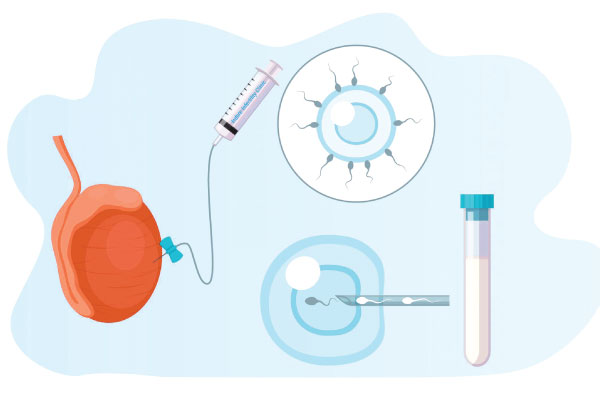
What is treatment for poor sperm quality or poor sperm morphology?
Sperm morphology means the shape and form of the sperm. Abnormal morphology means that sperms are not of the right shape and are probably abnormal. In a normal semen sample at least 4% sperms should be of normal shape and size.
If less than 14% of the total sperms in a semen sample are normal, then the sperms are said to be of abnormal morphology. This is also called terato-zoospermia.
- Having at least the minimum number of normal sperms is vital to achieve pregnancy. As previously discussed, many of the causes of abnormal semen parameters like sperm count, quality and motility are overlapping, and hence the way to enhance this quality is similar. The two most important ways are by lifestyle changes, and including supplements in your diet.
- For lifestyle changes to improve sperm quality please read previous answer about improving sperm count, as the lifestyle changes are the same for these parameters.
- Your infertility specialist can also prescribe you certain supplements to enhance production of good quality sperms.
Supplements for improving sperm morphology are:- Coenzyme Q10: 200-400 mg/day – improves sperm concentration, motility and morphology
- Folic Acid: 400 mcg/day – improvs sperm concentration and quality.
- Methyl-cobalamin: > 1500 mcg/day – improvs sperm concentration and quality.
- Selenium: > 50 mcg/day -improved sperm counts, concentration, motility and morphology.
- Lycopene: 4-8 mg/day – antioxidant, reduces oxidative damage to the sperms.
- Vitamin C: 500-1000 mg/day – protects the sperm from DNA damage.
- Vitamin E: 800 mg/day – protects the sperm from DNA damage.
Is TESA necessary if I suffer from OATS – Oligo Astheno Teratozoospermia?
The problem in cases of male infertility with OATS- Oligo astheno teratozoospermia is multifold, the sperm count is less, sperms are less mobile and abnormal forms are more than the acceptable limits. Achieving conception by intercourse is usually not possible especially if it is case of severe OATS.
Men with severe OATS usually require help from assisted reproduction methods like ICSI. But at times if the parameters in the ejaculated sample is very low, the male fertility specialist may suggest to undergo a procedure called TESA. Men with severe OATS usually show high DNA damage to the sperm present in their ejaculate. The testicular sperms usually have low DNA damage in such cases and that is the reason why at times they are suggested to undergo TESA.
TESA is the procedure by which sperms can be directly retrieved from the testis and that sample can be used for either semen cryopreservation to be used at a later date, or for IVF-ICSI directly.
It is one of the reliable methods for becoming biological father for men with severe semen abnormalities.
Are there any natural ways to improve sperm count and sperm motility?
Yes, there are many natural ways to enhance your sperm motility and count. It is important to follow a disciplined lifestyle including lifestyle modifications. For details on lifestyle modifications, read answer previously given for how to improve sperm count.
It is also advised by fertility specialists that you include rich sources of foods essential for normal sperm production to enhance your sperm quality. Following is a list of such foods and the particular source they are known to be rich in. Ensure that you include as much of these fertility enhancing food as possible in your diet when you are undergoing treatment for infertility:
- Levo-carnitine: improves sperm motility.
Sources:
• Meat dairy
• Whole wheat bread - Fructo- Oligosaccharide Prebiotic and fiber source.
Sources:
• Onion
• Chicory
• Garlic
• Asparagus
• Banana
• Artichoke - Coenzyme Q10: improves sperm concentration, motility and morphology.
Sources:
• Oily fish (such as salmon and tuna)
• Organ meats (such as liver)
• Whole grains - Folic Acid: improvs sperm concentration and quality.
Sources:
• Broccoli
• Brussels sprouts
• Leafy green vegetables, such as cabbage, kale, spring greens and spinach
• Peas
• Chickpeas
• Kidney beans
• Breakfast cereals fortified with folic acid - Methyl-cobalamin: improvs sperm concentration and quality.
Sources:
• Lean meats
• Poultry
• Eggs
• Seafood
• Beans
• Peas
• Lentils
• Nuts and seeds
• Soy products - Selenium: improved sperm counts, concentration, motility and morphology.
Sources:
• Brazil nuts
• Seafoods
• Organ meats are the richest food sources of selenium
• Muscle meats
• Cereals
• Grains
• Dairy products - Zinc: increases the volume of semen, progressive sperm motility percentage and total normal sperm count.
Sources:
• Meat
• Shellfish
• Dairy products
• Oysters
• Red meat
• Poultry - Lycopene: antioxidant, reduces oxidative damage to the sperms.
Sources: Red fruits and vegetables
• Tomatoes
• Pink guavas
• Apricots
• Watermelons
• Pink grapefruits - Vitamin C: protects the sperm from DNA damage.
Sources:
• Citrus fruit, such as oranges, lemon
• Peppers
• Strawberries
• Blackcurrants
• Broccoli
• Brussels sprouts
• Potatoes - Vitamin E: protects the sperm from DNA damage.
Sources:
• Wheat Germ Oil
• Almonds
• Sunflower Seeds
• Pine Nuts
• Avocado
• Peanuts
• Fish
• Red Bell Peppers
How can I improve my sperm motility?
Sperm motility is the measure of the movement of sperms. It is one of the vital functions of sperm, and hence important for achieving pregnancy. Sperm motility can be improved by a holistic approach, including lifestyle changes, dietary changes and also some supplements can be prescribed by your fertility specialist to improve your sperm motility.
Please go through previous answer about how to improve sperm count and motility for the lifestyle changes advised, as they are same for almost all sperm parameters.
Dietary changes advised:
Having a healthy and balanced diet – including fresh fruits, vegetables, dry fruits: To ensure production of good quality sperms, and to improve sperm counts, a healthy balanced diet is recommended. Avoiding junk and preserved food is also important. To ensure improvement in sperm motility few supplements are specifically necessary and taking diet rich in those can definitely improve motility.
Following is a list of such nutrients and their good sources, try and include them as much as possible in your diet.
Coenzyme Q10: improves sperm concentration, motility and morphology.
Sources:
• Oily fish (such as salmon and tuna)
• Organ meats (such as liver)
• Whole grains
Selenium: improved sperm counts, concentration, motility and morphology.
Sources:
• Brazil nuts
• Seafoods
• Organ meats are the richest food sources of selenium
• Muscle meats
• Cereals
Along with above, also try and include the following for improving the sperm motility:
Vegetarian diet options
• Whole wheat bread
• Onion
• Chicory
• Garlic
• Asparagus
• Banana
• Artichoke
• Broccoli
• Brussels sprouts
• Leafy green vegetables, such as cabbage, kale, spring greens and spinach
• Peas
• Chickpeas
• Kidney beans
• Beans
• Peas
• Lentils
• Nuts and seeds
• Soy products
• Dairy products
• Red fruits and vegetables
• Tomatoes
• Pink guavas
• Apricots
• Watermelons
• Pink grapefruits
• Citrus fruit, such as oranges, lemons
• Strawberries
• Blackcurrants
• Potatoes
• Wheat Germ Oil
• Almonds
• Sunflower Seeds
• Pine Nuts
• Avocado
• Peanuts
• Red Bell Peppers
• Brazil nuts
• Whole grains
Non-Vegetarian diet options
• Lean meats
• Poultry
• Eggs
• Seafood
• Shellfish
• Oysters
• Red meat
• Oily fish (such as salmon and tuna)
• Organ meats (such as liver)
